Documentation

“To survive out there” – T.P.
*Theater ecology* – – not ecology of theater, or theatrical ecology, but theater ecology. The two terms side by side – – not desiring to exceed beyond the “horizon” of either of the terms – – and so, a gap between them appears. Theater ecology calls forth an intermediate bridge. Within theater ecology, the gesture…
Read more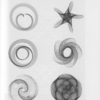
“Harmonic vibrations rule the world” – T.P.
“Music is the pleasure the human mind experiences from counting without being aware that it is counting” Gottfried Leibniz (~1700) Around 500 B.C., Pythagoras showed that when strings have simple ratios of their lengths, they will make a harmoniously pleasing chord when you pluck them. If one oscillates twice as fast as another (at a…
Read more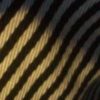
“Twenty-First-Century Feed-Forward Music” – Antony Nestel
How does the universe sound like? A question mathematician and electronic musician Valery Vermeulen is occupied with. Vermeulen’s interest doesn’t stop there, he manages with the captured abstract scientific data stemming from space to realise innovative ways to compose and perform music compositions. Vermeulen uses two distinct creative processes that facilitate ‘his’ cosmic music possible:…
Read more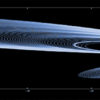
“Never the Twain Shall Meet” – Dennis Jansen
The contact points between art and scholarship are usually places where both realms face an irresistible challenge, a question: what makes one different from the other? At a time when local art galleries engage in ‘research’ projects and university professors increasingly seek to incorporate “practice-based research” (Nelson 2006) and “auto-theory” (Bal 2013) into their work,…
Read more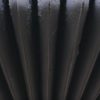
“Music and ‘the fundamental nature of the universe'” – Christl de Kloe
Valery Vermeulen, mathematician and musician, provided us, in the second TiM seminar, with some interesting insights into what interdisciplinary work can look like. Amongst others, he presented a project where he makes music “using data stemming from space and deep space and astrophysical models” (“Mikromedas – Valeryvermeulen.Net” n.d.). In this blog, I will discuss two…
Read more
“Horizon of beats as measuring tools” – Freja Kir
This piece of writing is the first in a series of short blog posts reflecting on current perspectives for measuring transmissions in motions. The writings specifically draw on references and inspiration shared from a seminar of similar title hosted by the University of Utrecht. Throughout these written reflections my focus will be set on unpacking…
Read more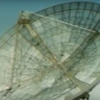
“Music is math, unfortunately” – Angelo Zinna
Despite the length of my relatively short-lived career as a student of literature, there is one recurring question I am confronted with on a regular basis that I have learned to answer without hesitancy. To those who inquire on whether investing years of one’s life reading (and, at times, rereading) novels, verse, and comics often…
Read more
“The ethical magician” – T.P.
Following from the notion that agents do not create the technical essence from which technology evolves, but do create the techniques that steer it, Jason Tuckwell identifies art as the sort of work that deviates. For Tuckwell, art’s activity is located specifically in the creative process in which technē (skillfull action) works upon a general…
Read more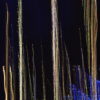
“The Process Of Art As Wandering” – Anthony Nestel
How does art come to be? Aristotle reminds us that art is not an ontological problem, but rather a problem about causation. In his inspiring lecture Jason Tuckwell defines art as Techné – a skill or a technical capability to deviate processes of becoming. In contrast to poiesis – to make – techné doesn’t have…
Read more
“Art, Technē, and the Question of Aura” – Dennis Jansen
During his recent TiM lecture, philosopher Jason Tuckwell argues that Walter Benjamin’s Marxist analysis of material production in “The Work of Art in the Age of Its Technological Reproducibility” ([1936] 2008) is symptomatic of a more general tendency to reduce art solely to its mode of production, and thereby foregoes the question of how art…
Read more
